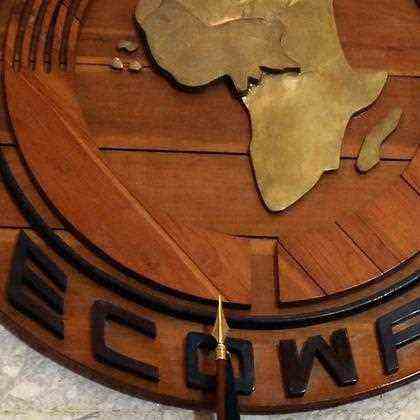Status: 10.01.2022 6:11 p.m.
Mali and the neighboring states impose sanctions on each other. The reason for this is that elections in Mali have been postponed by the military junta for up to five years. This also makes the situation in the country unstable.
Harsh sanctions against the military junta in the crisis state of Mali: After it announced that it would postpone the promised elections in February, it was enough for the West African Economic Union ECOWAS. Their representatives met on Sunday for a special summit in Ghana. Jean-Claude Brou, President of ECOWAS, subsequently called the transition plan “unacceptable” – it simply means “that an illegitimate military transitional government will take the Malian people hostage for the next five years”.
The consequence: the sanctions will be tightened even more. All ECOWAS states want to withdraw their ambassadors, close their borders with Mali and largely suspend trade and financial transactions. In addition to the trade embargo, financial aid for the country is also to be cut and Malian assets are to be frozen at the central bank of the West African states.
ECOWAS demands that the originally planned election date in February be kept and that the transition to a civil government be made possible. However, the military junta in Mali recently presented a five-year transition plan. The reason given by the military junta: They will only set an election date after a nationwide conference, since a peaceful vote is more important than a quick election. This triggered violent protests from neighboring countries.
The junta sees a danger
Mali reacted to the tightened sanctions the day after the summit, Colonel Abdoulaye Maïga, spokesman for the Malian government, said it was regrettable that ECOWAS was “being instrumentalized by supraregional powers”. For its part, Mali is calling back its ambassadors from the ECOWAS states and closing its land and air borders with the states concerned. “In view of the possible deployment of foreign troops against our country,” the Malian government called on the security forces and the population to remain on alert and mobilized.
Parts of the population also mobilized – against the military junta. Hundreds of demonstrators gathered in the capital Bamako on Sunday to protest the plans of the military junta. A protester called for a swift transition to a democratically legitimized government. A transition that can take up to six years is “not a transition, but a mandate from a president!” And Colonel Assimi Goita, the current interim president of the military junta, does not have such a legitimation.
With the new sanctions and elections a long way off, the crisis state of Mali remains at a dead end. The political situation has been marked by severe instability since 2012. The military has put itself to power twice in the past two years. In addition to the political crisis, there is also the ongoing security crisis. Numerous armed and extremist groups operate in the country. Thousands of international security forces – including the German Armed Forces – are on site in the fight against terrorism and for stabilization purposes. How much longer, given the political situation in Bamako, is being discussed in Europe with ever louder discussion.

Who is part of ECOWAS?
The “Economic Community of West African States” (ECOWAS) is an alliance of 15 West African countries: Benin, Burkina Faso, Cape Verde, Ivory Coast, Gambia, Ghana, Guinea, Guinea-Bissau, Liberia, Mali, Niger, Nigeria, Senegal, Sierra Leone and Togo. The alliance was founded in 1975.
After postponing the election: tough sanctions against Mali
Dunja Sadaqi, ARD Rabat, 10.1.2022 5:21 p.m.

